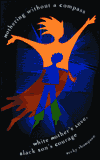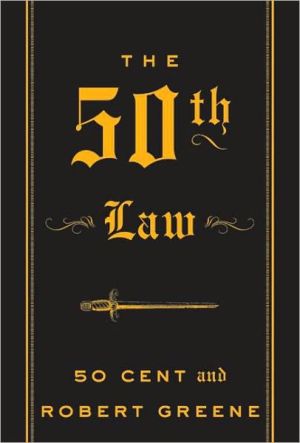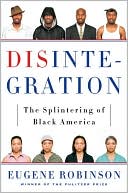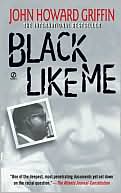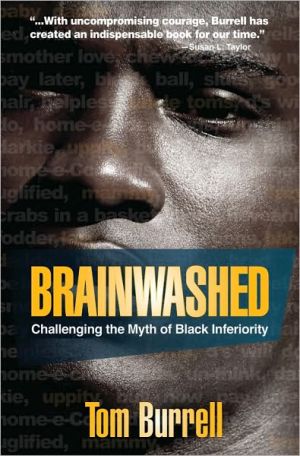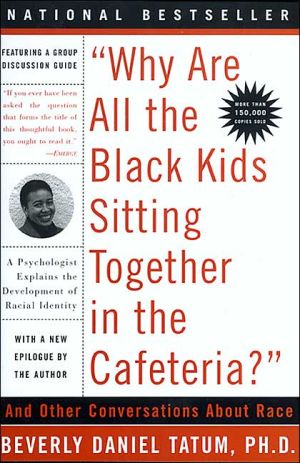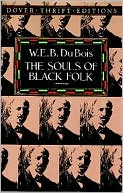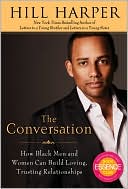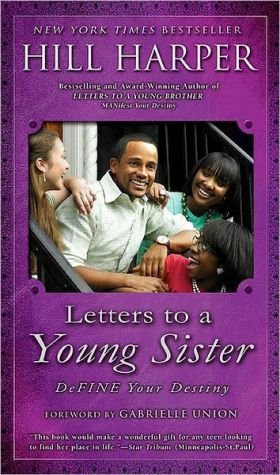Mothering without a Compass: White Mother's Love, Black Son's Courage
Parenting/Women's Studies \ A lively meditation on creating a multiracial family.\ In 1997, Becky Thompson began parenting nine-year-old Adrian at the request of his mother, and her life changed forever. Mothering without a Compass is the moving story of her first year as the white lesbian "sudden-mother" of an African American boy. From the everyday yet sometimes overwhelming tasks of finding Adrian a school and debating the significance of action figures, to unexpected discussions about who...
Search in google:
Parenting/Women's Studies A lively meditation on creating a multiracial family. In 1997, Becky Thompson began parenting nine-year-old Adrian at the request of his mother, and her life changed forever. Mothering without a Compass is the moving story of her first year as the white lesbian "sudden-mother" of an African American boy. From the everyday yet sometimes overwhelming tasks of finding Adrian a school and debating the significance of action figures, to unexpected discussions about who pays whom at the sperm bank, to the more complicated matters of racism, sexuality, nontraditional families, open adoption, love, and loss, Thompson gives us an absorbing and often humorous account of her attempt at antiracist, multicultural parenting. Mothering without a Compass highlights a range of issues and experiences: Thompson's desire to be a good mother while holding on to her sense of self; her growing, detailed knowledge of the ways in which racism affects people's feelings about themselves and the world around them; her increasing appreciation of the inner life of a child; her realization that mothering forces her to confront her own vulnerabilities and past losses. The book opens with Adrian's arrival and ends with a visit from Adrian's biological mother, during which she and Thompson search for ways to respect each other as parents across racial, religious, and cultural divides. Mothering without a Compass relates a lesbian parent's struggle to help her child grow up and describes the complexities facing children who have more than one family. This candid, personal story shows that it is through everyday life that questions about race, class, gender, and sexuality areoften played out. It is a necessary book for all parents-for anyone concerned with the challenge of raising justice-minded children in a complicated world. Becky Thompson is the author of A Hunger So Wide and So Deep: A Multiracial View of Women's Eating Problems (Minnesota, 1994) and coeditor (with Sangeeta Tyagi) of Names We Call Home: Autobiography on Racial Identity (1996) and Beyond a Dream Deferred: Multicultural Education and the Politics of Excellence (Minnesota, 1993). She is associate professor of sociology at Simmons College in Boston. SIDEBAR: "This is a wonderful book, honest and beautifully told. All the doubt, uncertainty, and changing consciousness of the experience of motherhood is powerfully drawn. Thompson is a writer who is committed to social justice, yet knowledgeable of the psychological and moral complexities that can sometimes, understandably, be erased by political agendas. I read this book and responded to it as a mother, as a feminist, and as a writer." Jane Lazarre, author of Beyond the Whiteness of Whiteness: Memoir of a White Mother of Black Sons Translation Inquiries: University of Minnesota PressPublishers WeeklySociologist Thompson, whose previous research explored the connections between childhood abuse and eating disorders (A Hunger So Wide and So Deep, 1994), chronicles the emotional rewards of her first year raising Adrian, a nine-year-old African-American boy whose mother has asked Thompson--a white lesbian--to parent him. Thompson eloquently relates the difficulties of bringing up a proud, intelligent and sensitive child in a culture that, she says, does not recognize such qualities in African-American men. She soon finds that her commitment to raising Adrian in a multicultural, progressive environment is trickier than she had imagined. For instance, she encourages the boy to give a classroom presentation about Malcolm X, only to find that the black leader's arguments about the political efficacy of violence upset the boy and bring up memories of physical abuse at the hands of his stepfather. Furthermore, Adrian's progressive, private school--which caters to a wealthy, liberal clientele--forces Thompson to confront her own tenuous middle-class identity, as well as the implications of raising her son in a climate of privilege. Adrian's precocious yet na ve questions about sexuality and motherhood ("When a lesbian goes to a sperm bank, does she pay the bank or does the bank pay her?") point to the changing nature of sex education in an era of reproductive technology and same-sex parenting. Thompson is frustratingly reserved when discussing Adrian's mother's motivations for leaving her son with a white woman she barely knows, and may leave some readers wishing that she would put her social critiques on hold in favor of a richer exploration of her personal feelings and doubts about parenthood. But this memoir will strongly appeal to anyone interested in the complications and pleasures of raising children in a culture of increasingly different and contested "family values." (Oct.) Copyright 2000 Cahners Business Information.
\ \ \ \ \ Chapter One\ \ \ OCTOBER\ \ \ Put my head in her hands,\ our two heads together\ \ \ I had known for many years that I was going to be a mother. In fact, I had had a recurring feeling since early adulthood that a child would simply arrive on my doorstep. My intuition was that I wouldn't even have to go and fill out papers. A child would simply show up at my house. So, I wasn't very surprised when Adrian—the younger brother of Andrea, a marvelous, twenty-one-year-old woman who had become my goddaughter a few years earlier—arrived for a two-week summer vacation in August 1997 and then announced a week later that he was staying for good.\ When Adrian's mother called a few days later to ask if I would continue to care for him, I was afraid my excitement might make me rush to control a conversation that was really hers to initiate. My mind raced, wondering what I would need to know as a white lesbian to raise an African American boy in a country that so complicates that arrangement. My heart beat hard, but I hadn't been surprised that Adrian's mother had called. I do remember feeling flushed after we hung up, after I told her I would be honored to care for him, and that I would love him as much as any human being could. And I remember feeling grateful that Andrea was just downstairs, so I could tell her the news in person, put my head in her hands, put our two heads together, and be quiet for the moment while I felt my life turning in a new direction, forever changed.\ Since then, I have often felt like a skittery deer, darting from storetostore in search of a book, a poem, an essay, even a title that could give words to what this experience is doing to me, what this experience is requiring of me. I have been reading as if my life depended on it, wanting so much to know how people raising adopted children talk with them about betrayal, abandonment, and loneliness. I want so much to read writing by white and Black women who are raising Black sons. I want to have, already on my bookshelves, easily reached, writing about the vulnerability, joy, terror, and deep loneliness I feel as I am learning to mother. I search through store after store, in hopes of finding a book that will tell this story, only to realize that no one book will do. This is a story of discontinuity, not found in any one place, best reckoned with if I accept fragmentation as an inevitable part of my past, his past, and our present together.\ By night, and in fifteen-minute snatches between work and picking Adrian up from school, I search for books. By day, I search people's eyes, wondering if they will be up to the task of hearing me out—about mundane issues that I am encountering for the first time, but that most mothers of nine-year-olds have long since figured out. I scroll down in my brain, in my telephone book, wondering which friend I can call, who I can talk with without having to explain much.\ I have never felt so compartmentalized in all my life. One conversation with this person. Another conversation with that person. No full conversation with any one person. An old colleague, an African American woman who is an antiracist educator, knows about the scapegoating Adrian is facing at school and how that has everything to do with his being African American and a new student. Another friend, an Indian mother of two young boys, knows about the deep exhaustion I feel as a new mother, a new mother of a nine-year-old who has energy all day and much to spare late into the night. Andrea knows so much about Adrian's past, and I find myself craving any details she can give me about where Adrian has lived, what he is used to eating, how he has dealt with anger in the past, and what will comfort him when he is tired. But Andrea wants to say little, as he reminds her of where she was during a period in her life that she, understandably, wants to distance herself from, along with so much she has seen and they have seen together.\ In moments when I am overwhelmed, I feel like I am cut up in a thousand pieces—running around trying to find advice about race, about adoption, about class, about culture, about mothering, from a community of people already fragmented by these issues. In calmer moments, I understand that the fragmentation is as much about me as about anyone else—it is about my own inability with words, my own confusion, my own difficulties with saying the whole story, even if there were a single person who could hear it all. With that realization, I see that I am running around looking for myself.\ The desperate desire I have to write, to read, to think, comes from wanting to make sense of a story that has already been cut into pieces. How do you splice film that comes from so many cameras—from Polaroids, from 35-millimeters, from disposable point-and-shoots? How do you splice together film based on footage that has not been shot—about conversations that the politics of race and mothering have made difficult, if not impossible, to have?\ In moments of panic, I feel like I need to create a village from scratch. There are whole categories of people I need to know now in a way I didn't before. African American mothers of Black children. White mothers of Black children. Writing mothers of small children. White lesbians with children of color. Black children who play with action figures and Beanie Babies. White children who already have African American playmates—so that Adrian won't be their first.\ At other times, I realize, gratefully, that most of the village now surrounding Adrian seems to have been miraculously awaiting his arrival. Longtime friends who self-named themselves his uncles and aunts. A Jewish friend and writer, Jo, who raised her now-grown daughter within a multiracial community, so that seeing African American and Latina women around her house when she was growing up was, itself, unremarkable. A white woman student of mine, Kerry, who emancipated herself from her abusive family when she was only thirteen, and her Nigerian fiancé, Kayode, who immediately referred to themselves as Adrian's aunt and uncle. Both take Adrian out on adventures regularly. Recently made friends who knew to bring Adrian a fancy warm coat for his first winter in Boston. A close friend who knew that getting Adrian into a private school was one thing that I, with much help from activist connections, could do. Paying for it I couldn't do, without her help, which she provided immediately. In calmer moments I understand that three months into it, a community has already created itself. Not enough. Not complete. But remarkable nevertheless.\ Of course, I didn't have a clue at first about what I'd need to begin to mother Adrian. I didn't know that mothering him would force me, enable me, to become close to a whole community of people I might never have met otherwise. I didn't have one moment to reflect, to ask myself how to learn what I was going to need to know. The first few weeks with Adrian in my life were frantic. Yes, I made time to play basketball together; to introduce him to J. P. Licks, a neighborhood ice-cream store that has long been a hallmark of this intentionally multiracial, mixed-class community in Boston where I live; to take him to the pond with my three dogs (who are quickly becoming his three dogs, too). I did find time to begin introducing him around.\ What I most remember, though, about the first few weeks was my utter panic about how to get Adrian into a racially diverse private school—no small task given that school was starting in ten days. In Boston, the progressive private schools have long, long waiting lists of parents who know that private grammar schools and high schools are the feeder schools to private colleges. I remember feeling weary at the thought of having to call people I had never met, of having to explain, from the beginning, in compelling and brief terms, why I was calling at the last minute, why it was essential for them to make a space for Adrian in their school.\ When I was a postdoctoral fellow in African American studies several years ago, I was struck by a discussion I heard following a talk by Cornel West. A student asked Professor West whether he thought it was problematic for white parents to send their children to private schools. In effect the student was asking whether buying an education was a 1990s version of upholding the 1896 Plessy vs. Ferguson "separate and unequal" Supreme Court ruling. I expected Cornel West to say that people shouldn't give up on public schools, that integration was crucial, and that learning side-by-side across race and class was necessary to break open racial locks. But he didn't say that. Instead he said that he understood why white families might send their children to private schools. He said that it wasn't fair to compromise individual children's education as long as their education might well suffer because of underfunding and poor resources.\ I remember being shocked by his answer because I had been raised to believe that white people, especially, should not abandon public schools. To do so was to cash in on a class and race privilege not available to everyone. Plus, I had been raised to believe that private education would somehow stunt children's growth. If they were isolated by race and class in childhood, they would be destined to repeat that narrow mind-set as adults. And yet I was also compelled by Cornel West's answer—by his honesty and his willingness to confront a party line I had barely questioned.\ While I stored his position away in my head, I continued to speak out in support of public schools, and of the activism necessary to keep them alive, right up to the day that Andrea, Adrian, and I arrived at a local "exam" high school in Boston to talk about the school's crew program. A 1984 Olympic-champion-turned-extraordinary-crew-coach had asked Andrea and me to speak as a "mother-daughter" team about the thrills of crew for young women. I had originally met Andrea, the captain of a crew team at a private university in Connecticut, when I was teaching at the school and rowing with a masters women's crew team. The fact that crew had initially brought us together only increased our excitement about the sport, individually and as intergenerational devotees.\ Andrea, Adrian, and I arrived at the public high school with Adrian's Legos in tow, which we hoped would occupy him for two hours of presentations by school administrators before the athletic department (including us) would get a chance to speak. The Legos did work, for a while, until Adrian picked up on Andrea's and my anxiety-turned-to-rage about what we saw. At this school, which, as an "exam" school, is supposed to be one of the best in the Boston public school system, one administrator after another lectured the parents—about how their children were ill prepared, about how there would be repercussions if the parents couldn't "control their children," about how lucky the parents should feel that their children had been accepted at a school that looked frighteningly like a prison. The lectures had no substance. The administrators said nothing about a goal of educating African American, Caribbean, Latino/a, and Asian American youth to be leaders for the twenty-first century. They did not mention the skills, initiative, and family support that helped get these children to an exam school. And they were silent about how and why the school might fight for its share of the resources and then some.\ Andrea, who had been shuttled from school to school to school when growing up but who had landed at a private school her last two years of high school, got more and more antsy as the administrators railed on. And we both began to feel rage. Rage at the condescension aimed at the parents, many of whom had no doubt arranged for time off from work that morning to accompany their children to this nonevent. Rage at the realities of racism and classism that for two centuries have blocked what would be a simple and elegant step toward abolishing educational apartheid in this country: assign the exact same amount of money per child, per head, regardless of differences in property taxes and local, state, or regional commitments to education.\ As the speakers droned on and on, I also got madder and madder at myself, for my naïveté, for the liberal line on education that I had both accepted for myself and supported in my teaching—a position that had little grounding in what I was seeing and feeling that day. Andrea whispered to me that I had to do whatever I needed to be sure that Adrian did not have to "go to a school like this." And I saw my long-carried belief that I would work with other parents to make the public school what it needed to be evaporate. I wouldn't do that. I couldn't do that. How do you make a building that looks like a prison not look like one? How do you change a school—in time for your own child—that the whole tax structure and history of racism in Boston have underfunded for years?\ I became part of white flight in that moment—white flight with an African American child—and I understood Cornel West's position. I didn't yet have a clue about how I could come up with the money I would need to pay for a private education. Childless person I had been, I had almost no knowledge of which private schools to seek out, how to apply, or whom to call. The horrendous experience Adrian had had at the neighborhood camp that summer—being called a "sissy," a "faggot," and "not Black enough," being told to kneel on the floor with his hands up on a table edge with thirty other children for half an hour because they were "bad"—let me know that I had to do my homework fast.\ Andrea and I went to a secondhand store in Brookline (since the best secondhand stores are where rich people live), where we bought him a barely used J. Crew oxford-cloth shirt that I then washed and ironed four times, for four interviews at private schools in the area. Adrian, gregarious and openhearted child that he is, smiled and talked and answered the many questions asked of him. He took several standardized tests, as well as those designed by each school. After the second interview, he said he couldn't possibly do one more. He slept all the way in the car—a forty-five-minute drive—to the third interview, even though he had just slept a full night through. I remember trying to drive quietly (as if that is possible in Boston, the car-honking capital of the country), hoping that sleep would give him whatever strength he needed to go on a tour of yet another school, meet another set of teachers, and take another diagnostic test.\ I became part of white flight as I began calling every educator and activist I knew—African American, Latino, and white—in hopes that they might know someone, somewhere, who might know someone on an admissions committee someplace, who might be willing to meet Adrian and me, ten days before school started, to interview for a place in a school that I knew full well had been filled at least a year before. In those moments, I understood I was working a class privilege by using contacts I had through the private college where I taught, to call administrators in other private schools, who themselves, or their children, had attended private schools. I knew that I was trying to find a "legacy" way into a private school through a process of nonbiological associations.\ No surprise that the people who found me a "way in" were mostly people of color. In fact, I got the most help from a Latino dean of a college that specializes in education —a man whose children attend a private school and who is a member of the board of trustees at a prep school in the area. He made calls that got Adrian an interview with the dean of admissions at three private schools, all of whom accepted Adrian within a few days of our applications, five days before the start of the school year.
Put my head in her hands, our two heads together1 Witness to the telling11 Limb from limb19 Telling, not telling, still hurting27 What part of the story do I tell?29 Heart on the table, in my hands41 In the age of no innocence53 Lost time, in time, on time, with time67 In the gaze, in the tone of the voice79 Much of the script, already written93 Father love105 Mother love113 Sex education in the 1990s125 So grown137 Sand beneath my feet, the tide takes its turn149 Acknowledgments163 Notes167
\ Publishers Weekly - Publisher's Weekly\ Sociologist Thompson, whose previous research explored the connections between childhood abuse and eating disorders (A Hunger So Wide and So Deep, 1994), chronicles the emotional rewards of her first year raising Adrian, a nine-year-old African-American boy whose mother has asked Thompson--a white lesbian--to parent him. Thompson eloquently relates the difficulties of bringing up a proud, intelligent and sensitive child in a culture that, she says, does not recognize such qualities in African-American men. She soon finds that her commitment to raising Adrian in a multicultural, progressive environment is trickier than she had imagined. For instance, she encourages the boy to give a classroom presentation about Malcolm X, only to find that the black leader's arguments about the political efficacy of violence upset the boy and bring up memories of physical abuse at the hands of his stepfather. Furthermore, Adrian's progressive, private school--which caters to a wealthy, liberal clientele--forces Thompson to confront her own tenuous middle-class identity, as well as the implications of raising her son in a climate of privilege. Adrian's precocious yet na ve questions about sexuality and motherhood ("When a lesbian goes to a sperm bank, does she pay the bank or does the bank pay her?") point to the changing nature of sex education in an era of reproductive technology and same-sex parenting. Thompson is frustratingly reserved when discussing Adrian's mother's motivations for leaving her son with a white woman she barely knows, and may leave some readers wishing that she would put her social critiques on hold in favor of a richer exploration of her personal feelings and doubts about parenthood. But this memoir will strongly appeal to anyone interested in the complications and pleasures of raising children in a culture of increasingly different and contested "family values." (Oct.) Copyright 2000 Cahners Business Information.\ \ \ \ \ Library JournalThe success of the transracial adoption memoir depends on its ability to transcend a simple narrative and delve into serious issues. The question becomes, "Can the author step away from her situation and analyze prejudice, sexuality, class, etc.?" In the case of Loving Across the Color Line, the answer is yes. Rush, a civil rights lawyer, not only takes readers into the world of a white mother and her adopted African American daughter but also uses her parenting experiences to re-examine her beliefs on race relations in America. Her conclusion: racism is very prevalent and more debilitating than she first thought. In Mothering Without a Compass, Thompson (sociology, Simmons Coll.; Names We Call Home) covers the same issues but on a more personal level. Written in essay form and from a lesbian standpoint, the story of Thompson and her adopted African American son is less an attempt to obtain answers than to express her feeling that the racial and cultural differences between her and her child cannot be ignored. Both authors present honest, personal, and sometimes painful views of transracial adoption; both works are strongly recommended for public and academic libraries. Readers are urged to see Marguerite A Wright's I'm Chocolate, You're Vanilla: Raising Healthy Black and Biracial Children in a Race-Conscious World (Jossey-Bass, 1998).--Mee-Len Hom, Hunter Coll. Lib., New York Copyright 2000 Cahners Business Information.\ \ \ BooknewsIn 1997, Thompson (sociology, Simmons College) adopted a nine-year old African American boy at the request of his biological mother. As if that story were not unusual enough, Simmons is also a white lesbian. From the arrival of the boy to the visit paid by the boy's biological mother at book's end, the obstacles faced by this interesting mother- son pair are detailed in personal, candid prose. Thompson's knowledge of race, class, gender, and sexuality issues informs her experience, but the memoir remains accessible to a general readership. Annotation c. Book News, Inc., Portland, OR (booknews.com)\ \ \ \ \ Publishers WeeklyThompson eloquently relates the difficulties of bringing up a proud, intelligent and sensitive child in a culture that does not recognize such qualities in African American men. She soon finds that her commitment of raising Adrian in a multicultural, progressive environment is trickier than she had imagined. . . . This memoir will strongly appeal to anyone interested in the complications and pleasures of raising children in a culture of increasingly different and contested family values.\ \
